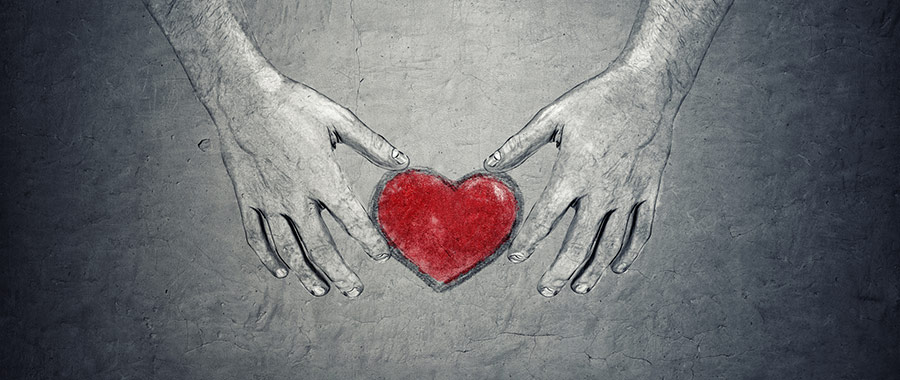In the contemporary discourse surrounding social equity, the Bahá’í teachings present a profound perspective on altruism as a catalyst for reducing the poverty and wealth gap. At the very core of these teachings is the notion that the well-being of humanity is inherently intertwined. Altruism, viewed through this lens, transcends mere benevolence; it evolves into a powerful antidote against the disparities that plague societies worldwide. This article explores the intricate relationship between altruism and the alleviation of poverty, illuminated through evocative metaphors and a contextual understanding of Bahá’í principles.
To begin elucidating this synthesis of altruism and economic equity, one can liken human society to a vast tapestry, where each thread represents an individual life interwoven with others. The quality and strength of this tapestry are contingent upon the health of each thread; if some threads fray due to neglect or despair, the entire fabric – which symbolizes communal well-being – deteriorates. Hence, the Bahá’í perspective implores individuals to perceive their roles not as mere spectators of societal issues, but as active weavers contributing to a resilient and harmonious whole.
Central to Bahá’í teachings is the belief that wealth is not an end, but a means to cultivate the collective good. Altruism, therefore, is not a passive virtue but an actionable principle demanding engagement with the destitute and marginalized. The process of uplifting others through selfless acts nurtures a reciprocal relationship; as one sows kindness, compassion, and resources, the community flourishes, ultimately enhancing individual prosperity. This reciprocity counters the prevailing narrative of competition over cooperation, introducing a paradigm shift essential for closing the wealth gap.
The Bahá’í writings advocate for the establishment of social and economic systems grounded in principles of justice, equity, and altruism. These principles propose that the alleviation of poverty necessitates a fundamental realignment of priorities. Economic policies must prioritize not only profit margins but also the social ramifications of wealth distribution. By embracing an altruistic ethos, policymakers and individuals alike can initiate and sustain frameworks that bridge the chasm between affluence and destitution.
Within this framework, education emerges as a cornerstone of altruistic action. The teachings emphasize the transformative power of knowledge; education stands as a beacon illuminating pathways out of poverty. An educated populace is better equipped to engage with societal issues, challenge inequitable structures, and innovatively contribute to community sustenance. Thus, investing in education becomes an act of altruism that reverberates beyond individual lives into the broader tapestry of society.
Moreover, the metaphor of a well-tended garden captures the essence of altruistic cultivation within communities. Just as a garden flourishes when nourished with care, compassion, and understanding, communities too can prosper when individuals invest their resources in the welfare of one another. Each act of kindness acts as a seed, planting hope in the fertile soil of shared human experience. It is here that altruism transcends the personal, becoming a communal endeavor pivotal in addressing systemic injustices.
Integral to the Bahá’í vision is the concept of the oneness of humanity. This principle underscores that the root causes of poverty are not simply economic but fundamentally spiritual and social. Altruism serves as a bridge across these divides. When individuals embrace the spiritual responsibility to care for one another, they dismantle barriers of division, cultivating an environment where everyone is empowered to thrive. This profound unity augments the potential for collaborative initiatives aimed at poverty alleviation, fostering environments where everyone contributes and benefits.
As the world grapples with widening economic disparities, the Bahá’í teachings remind us that wealth is a communal trust. To possess resources is to bear a responsibility not merely to oneself but to society at large. This reorientation of wealth from a personal commodity to a societal resource calls for a reevaluation of success. In an altruistic society, success is measured by the improvement of collective conditions, not just individual gains. This redefined success fosters a culture of giving and sharing, which is paramount in bridging the wealth divide.
Additionally, the practice of altruism must permeate the business landscape. Ethical entrepreneurship, which aligns profitability with altruistic aims, holds the potential to redesign economic interactions. Business leaders are encouraged to view the impacts of their enterprises through an altruistic prism, ensuring their operations contribute positively to society. By prioritizing ethical considerations alongside financial objectives, businesses become instrumental in weaving a tapestry of equitable opportunity for all.
The call to cultivate altruism is ultimately a call to action. It is an invitation to recognize that the resolution of poverty and the closing of the wealth gap hinge upon a collective commitment to the welfare of humanity. This commitment demands introspection, fostering a mindset shift from individualism to community upliftment. In a world rife with challenges, the Bahá’í teachings illuminate the transformative power of altruism, urging each person to contribute to the nurturing of a society where equity prevails and every individual has the opportunity to flourish.
In conclusion, the synergy between altruism and the closure of the poverty and wealth gap is a cornerstone of Bahá’í teachings. Through an unwavering commitment to collective betterment, communities can reforge the delicate threads of their tapestry, ensuring that no individual is left behind. As the garden of humanity flourishes through acts of kindness, empathy, and shared understanding, a resilient and equitable future becomes an attainable reality, guided by the beacon of altruism.
